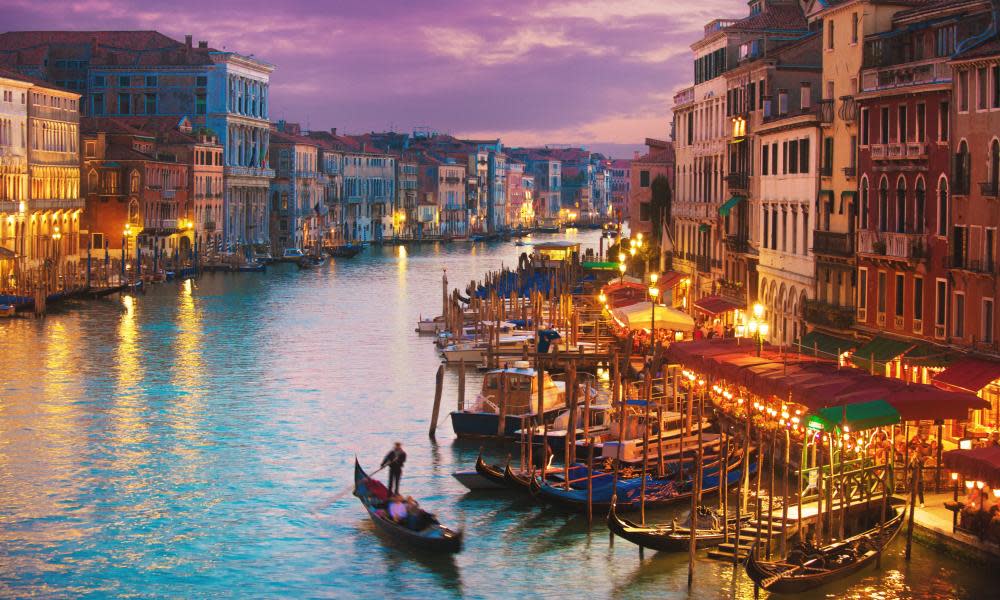Adventurer Leo Damrosch review – a post-MeToo biography of Casanova

Giacomo Casanova, that serial seducer of Enlightenment Europe, liked to think of himself as providing a social service. Whether it was romping in a gondola, or making out with two women at the same time (sisters were good, mothers and daughters even better) or getting it on with a girl who was passing herself off as a castrato (cross-dressing excited him), he insisted on the right of everyone involved to experience pleasure. According to Histoire de Ma Vie, the monumental and hugely priapic autobiography that he left behind at his death in 1798, Casanova very seldom resorted to violence or coercion. The worst thing that any partner might complain of was a certain post-coital tristesse which lasted only until the next sexual encounter arrived to chase it away.
Veteran biographer Leo Damrosch knows just how dodgily self-deceiving all this sounds. It is hard to see how an adult man who often slept with very young girls (10 was the legal age of consent) could be read today as anything other than a paedophile. Casanova’s insistence that everything was consensual overlooks, or over-writes, the brutal power dynamics in play. While he didn’t generally sleep with sex workers, he often slept with girls who were being prostituted by their parents or their protectors in return for favours, promotion, social advantage or even just a heavy purse. Venereal disease – he refused to use a condom or, as he put it, “envelop myself in a dead skin” – was not just a hazard but could, on occasions, be weaponised. And when the inevitable happened and Casanova did sire children, he was careful to have nothing to do with them. On one occasion he ended up sleeping with his daughter Leonilda, who produced a baby boy who was, of course, also his grandson.
There have been many biographies of Casanova before, some of them very good, although they have tended to be thesis driven – psychoanalyst Lydia Flem confected a Casanova who was a great understander of women while the actor and writer Ian Kelly presented him as a virtuoso performer on a social stage. Damrosch, a Harvard literary historian, is in turn clear that he is writing a post-MeToo Casanova. At the same time, he is also keen that we should understand just what a valuable document Histoire is for scholars working on the 18th century. It has only recently become available in its entirety and, despite some fantasy elements, bears unparalleled witness to the social, political and intellectual mindset of the time.
Casanova tried being an apprentice priest, a runner of lotteries and an orchestral violinist, before ending up as a prisoner
Damrosch’s Casanova is above all a materialist who believes that the world you can touch and see is the only one that matters: God, while useful for keeping the hoi polloi in order, played little part in his imaginative world. If something felt good – a meal, a breast, nice clothes – then it was worth pursuing. He was also, however, a firm believer in the “one body” model of sex, which assumed that women had exactly the same appetites and drives as men (the idea of them as sexless angels would not take hold until the Victorians).
More generally Damrosch shows how the patchwork boundaries of 18th-century Europe allowed a career criminal like Casanova to flit from jurisdiction to jurisdiction, changing his name, his appearance and what we would call today his “profile” as he shuttled from his native Venice to Naples to Barcelona to London and St Petersburg. As far as jobs went, he tried being an apprentice priest, a runner of lotteries, and a fiddler in an orchestra before ending up as a prisoner serving a five-year prison sentence for the somewhat vague crime of “irreligion”.
By the time he was 40 both Casanova and his Histoire were running out of steam. After decades of sexual adventuring, all his conquests start to merge into one. Casanova’s final job was as librarian to Count Waldstein. The nobleman’s castle was situated in Bohemia, which sounds more promising than it turned out to be. The last dozen years of the great seducer’s life were spent in fretful celibacy complaining about the local peasantry, which, one feels, was a far better fate than he deserved.
• Adventurer: The Life and Times of Giacomo Casanova is published by Yale (£25). To support the Guardian and Observer order your copy at guardianbookshop.com. Delivery charges may apply.

 Yahoo Movies
Yahoo Movies 
